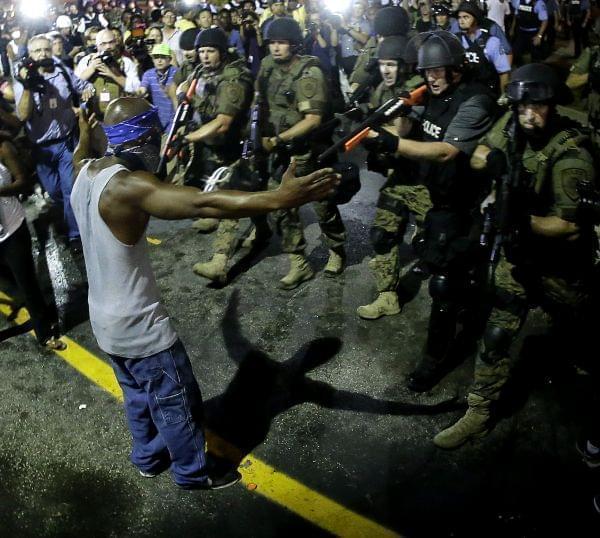Racial Violence In America Echoes From Past To Present

Police arrest a man as they disperse a protest in Ferguson, Mo. Police antagonized crowds gathered to protest the shooting of 18-year-old Michael Brown in Ferguson, violated free-speech rights and made it difficult to hold officers accountable, according to a U.S. Department of Justice report. (AP Photo/Charlie Riedel)
High profile racial violence has captivated the nation in recent years. From the death of Trayvon Martin to most recently a fatal shooting at Emanuel AME Church in Charleston South Carolina. An unspeakable tragedy that is reminiscent of the 1960's.
But Sundiata Cha-Jua, associate professor of history and African American Studies at the U of I says the present-day racial violence in fact differs from that of the civil rights era.
"In a number of ways what this symbolizes is a provocation that we are on the cusp of intense racial violence," said Cha-Jua, "We can see that racial violence seems to be tied to a series of political events in which black people appear to be making advance."
Cha-Jua highlights political events such as the election of President Obama as an event that is seen as a loss of power in the eyes of white supremacists.
Although many have likened the racial violence in America to that of the violence witnessed in the early civil rights era of the 1960's, Cha-Jua says there is a difference.
"We're not at the same moment of 1963, but we are at a moment of transition," said Cha-Jua. "In similar conditions - socioeconomic, racial attitudes, etcetera - we will get related responses. I think it's wise for us to think that rather than being in a post-racial moment, we're in a moment where race has intensely inserted itself as a dominant factor."
But the shooting at Charleston’s Emanuel AME Church is another painful chapter that echoes in America's history.
"It's going to mean essentially the same thing as the bombing and the killing of the four girls in Birmingham meant. It's going to be a legacy that reminds people, African American particularly, of just how close we always are to vicious expressions of white supremist's terror," said Cha-Jua.
Cha-Jua said he believes that America can and will reach racial equality, but the road ahead will be a long one.
"I have hope, I do," said Cha-Jua, "but when Frederick Douglass said that 'the limits of oppressors are prescribed by the endurance of the oppressed,' it's what you will tolerate. We need to stand up."
